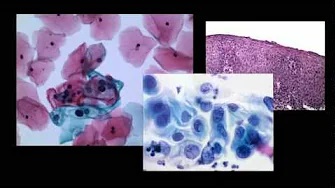Authors
Lise J. Estcourt, NHS Blood and Transplant and Radcliffe Department of Medicine, University of Oxford, United Kingdom (L.J.E.)
Claudia S. Cohn, University of Minnesota, Department of Laboratory Medicine and Pathology, Minneapolis, Minnesota (C.S.C.)
Monica B. Pagano, University of Washington, Department of Laboratory Medicine and Pathology, Seattle, Washington (M.B.P.
Claire Iannizzi, Evidence-based Oncology, Department of Internal Medicine, Faculty of Medicine and University Hospital Cologne, University of Cologne, Cologne, Germany (C.I., N.K., N.S.)
Nina Kreuzberger, Evidence-based Oncology, Department of Internal Medicine, Faculty of Medicine and University Hospital Cologne, University of Cologne, Cologne, Germany (C.I., N.K., N.S.)
Nicole Skoetz, Evidence-based Oncology, Department of Internal Medicine, Faculty of Medicine and University Hospital Cologne, University of Cologne, Cologne, Germany (C.I., N.K., N.S.)
Elizabeth S. Allen, University of California San Diego, Department of Pathology, La Jolla, California (E.S.A.)
Evan M. Bloch, The Johns Hopkins University School of Medicine, Department of Pathology, Baltimore, Maryland (E.M.B., R.G., A.A.R.T.
Gregory Beaudoin, Minneapolis, Minnesota (G.B.)
Arturo Casadevall, The Johns Hopkins University School of Public Health, Department of Molecular Microbiology and Immunology, Baltimore, Maryland (A.C.)
Dana V. Devine, Canadian Blood Services, Vancouver, British Columbia, Canada (D.V.D.).
Farid Foroutan, University Health Network, Ted Rogers Centre for Heart Research, Toronto, and Department of Health Research Methods, Evidence, and Impact, McMaster University, Hamilton, Ontario, Canada (F.F.)
Thomas J. Gniadek, NorthShore University Health System, Department of Pathology and Laboratory Medicine, Evanston, Illinois (T.J.G.
Ruchika Goel, The Johns Hopkins University School of Medicine, Department of Pathology, Baltimore, Maryland (E.M.B., R.G., A.A.R.T.
Jed Gorlin, Innovative Blood Resources, Division of New York Blood Center Enterprises, St. Paul, Minnesota (J.G.)
Brenda J. Grossman, Washington University in St. Louis School of Medicine, Department of Pathology and Immunology, St. Louis, Missouri (B.J.G.)
Michael J. Joyner, Mayo Clinic, Department of Anesthesiology and Perioperative Medicine, Rochester, Minnesota (M.J.J.)
Ryan A. Metcalf, University of Utah, Department of Pathology, Salt Lake City, Utah (R.A.M.)
Jay S. Raval, University of New Mexico, Department of Pathology, Albuquerque, New Mexico (J.S.R.)
Todd W. Rice, Vanderbilt University Medical Center, Division of Allergy, Pulmonary, and Critical Care Medicine, Nashville, Tennessee (T.W.R.)
Ralph R. Vassallo, Vitalant, Medical Affairs, Scottsdale, Arizona (R.R.V.)
Jeffrey L. Winters, Vitalant, Medical Affairs, Scottsdale, Arizona (R.R.V.)
Aaron A R Tobian, The Johns Hopkins University School of Medicine, Department of Pathology, Baltimore, Maryland (E.M.B., R.G., A.A.R.T.
Beth H. Shaz, Duke University, Department of Pathology, Durham, North Carolina (B.H.S.)
Publication Date
9-1-2022
Abstract
DESCRIPTION: Coronavirus disease 2019 convalescent plasma (CCP) has emerged as a potential treatment of COVID-19. However, meta-analysis data and recommendations are limited. The Association for the Advancement of Blood and Biotherapies (AABB) developed clinical practice guidelines for the appropriate use of CCP.
METHODS: These guidelines are based on 2 living systematic reviews of randomized controlled trials (RCTs) evaluating CCP from 1 January 2019 to 26 January 2022. There were 33 RCTs assessing 21 916 participants. The results were summarized using the GRADE (Grading of Recommendations Assessment, Development and Evaluation) method. An expert panel reviewed the data using the GRADE framework to formulate recommendations.
RECOMMENDATION 1 (OUTPATIENT): The AABB suggests CCP transfusion in addition to the usual standard of care for outpatients with COVID-19 who are at high risk for disease progression (weak recommendation, moderate-certainty evidence).
RECOMMENDATION 2 (INPATIENT): The AABB recommends against CCP transfusion for unselected hospitalized persons with moderate or severe disease (strong recommendation, high-certainty evidence). This recommendation does not apply to immunosuppressed patients or those who lack antibodies against SARS-CoV-2.
RECOMMENDATION 3 (INPATIENT): The AABB suggests CCP transfusion in addition to the usual standard of care for hospitalized patients with COVID-19 who do not have SARS-CoV-2 antibodies detected at admission (weak recommendation, low-certainty evidence).
RECOMMENDATION 4 (INPATIENT): The AABB suggests CCP transfusion in addition to the usual standard of care for hospitalized patients with COVID-19 and preexisting immunosuppression (weak recommendation, low-certainty evidence).
RECOMMENDATION 5 (PROPHYLAXIS): The AABB suggests against prophylactic CCP transfusion for uninfected persons with close contact exposure to a person with COVID-19 (weak recommendation, low-certainty evidence).
GOOD CLINICAL PRACTICE STATEMENT: CCP is most effective when transfused with high neutralizing titers to infected patients early after symptom onset.
Recommended Citation
Estcourt LJ, Cohn CS, Pagano MB, Iannizzi C, Kreuzberger N, Skoetz N, Allen ES, Bloch EM, Beaudoin G, Casadevall A, Devine DV, Foroutan F, Gniadek TJ, Goel R, Gorlin J, Grossman BJ, Joyner MJ, Metcalf RA, Raval JS, Rice TW, Shaz BH, Vassallo RR, Winters JL, Tobian AAR. Clinical Practice Guidelines From the Association for the Advancement of Blood and Biotherapies (AABB): COVID-19 Convalescent Plasma. Ann Intern Med. 2022 Sep;175(9):1310-1321. doi: 10.7326/M22-1079. Epub 2022 Aug 16. PMID: 35969859; PMCID: PMC9450870.

